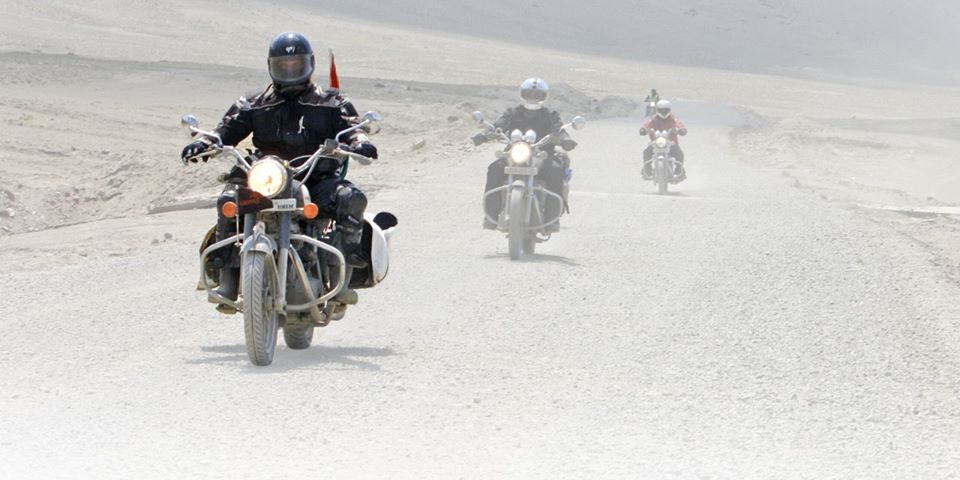Getting ready for a long ride?
Make sure you take care of your physical health too…
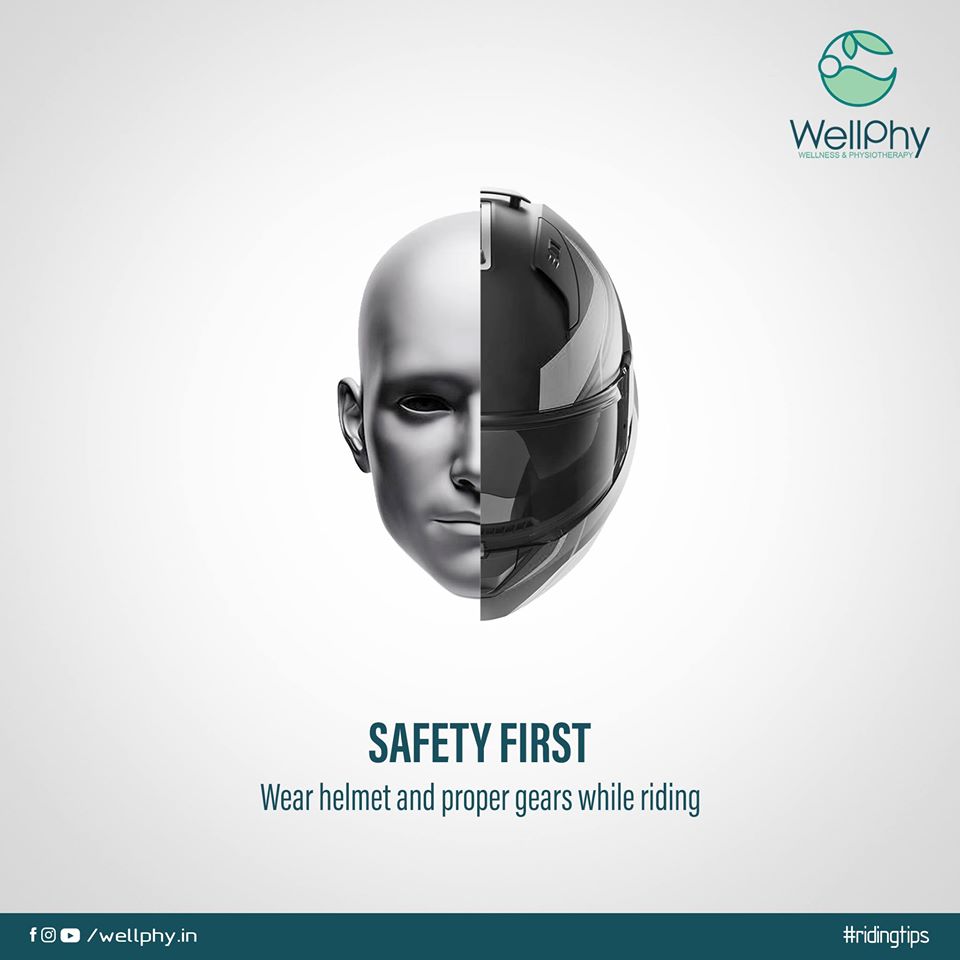
Safety First – Wear a helmet and proper gears while riding.
We consider helmet as only a protecting gear. But do you know it can help you to be healthy too?
It helps to keep your face, especially eyes healthy by avoiding dust, bugs, fine particles and rocks. If a small bug or a piece of rock smacks you in the eye at 70 mph, it could do some severe damage. It can also knock you out or disorient you, causing a collision. Above all, it terribly hurts when you get hit in the eyes. Like helmet, it’s important to wear safety gears while taking long rides. Ensure your safety first.
Long rides might need bigger luggage. But have you ever thought about how its arrangements might affect your health?
It’s important to arrange the luggage in such a way that the weight is distributed evenly on both sides, uneven luggage may affect the well being of your muscles as well as back as you will constantly try to compensate for the imbalance.
Are you back from a ride? want to know how to improve your health? comment or message us your concerns and questions.

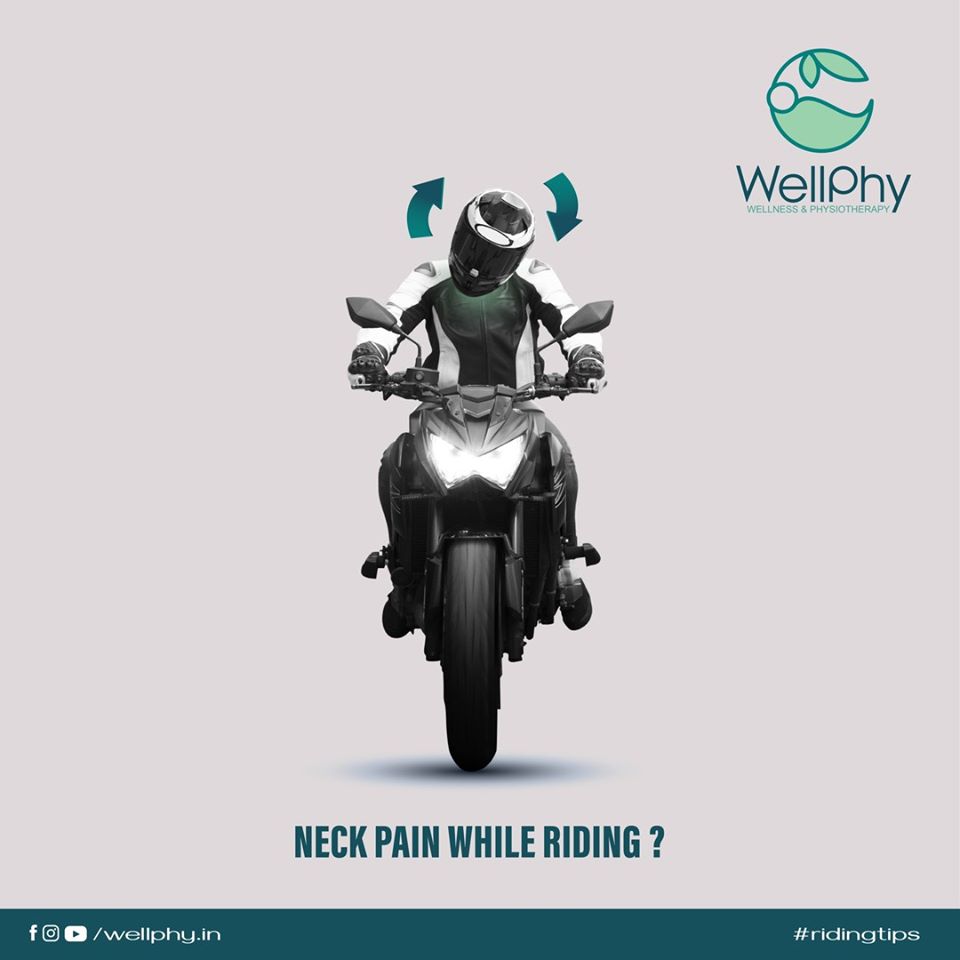
Neck Pain while riding?
What causes you the neck pain during long rides?
Wind pressure on your helmet, tension and grinding your teeth while you ride can cause
pain on your cervicals. The pain comes and goes from the base portion of the neck. It can cause
difficulties while moving your head.
How can you solve this?
It can be mitigated with some stretching exercises along with heat or heating creams.
Move your head towards your shoulder, smoothly but continuously. Breath out along with the
movement and exhale completely as you finish it. These measures increase the blood flow,
dilate the muscles and thereby heal the pain.
To prevent this problem in the future, move your head around while you are riding.
Notice how your neck muscles stretch and strengthen. It is typical to hear the cervical vertebra
adjusting themselves along with the movement; It is a signal which shows that you are
producing the desired result.
If the pain persists even after this, consult a physiotherapist as soon as possible.
Upper Back pain or pain on the shoulders is one of the common bike riding related issues.
If there is inflammation on these areas and the pain doesn’t go away even after taking rest, then seek out for a good physiotherapist.
Tips to reduce upper back pain:
• Buy a light and protective helmet, with good aerodynamics and not too many air entries.
• If you have a windscreen and it is producing turbulence when you ride, try a lower or higher screen, or even riding without it.
• Try not to keep the same posture position on your bike for a long time – turn your head from time to time and let your shoulders have some rest.
• If you’ve had contractures in the past, do some stretching exercises. A contracture not properly recovered can produce muscle fibrosis (hardening of fibres in the muscles) which is difficult to cure.
• Carrying a backpack could be the origin of the problem and might make it worse.
• Warm water showers and warm baths will ease symptoms immediately.
• If you already have the problem, your doctor can advise you on the use of muscle relaxants and physiotherapy.
• Combining zinc, magnesium and vitamin B6 will increase the creation of ATP, the fuel of our muscles. An expert nutritionist can advise you on its use.
• Perioding stretching of the neck muscles and swinging the neck gently may also help.
These tips will help you while riding. If the pain doesn’t subsidize even after rest , it’s always better to consult a physiotherapist. Ignoring mild pains such as this may lead to a worse condition in future.
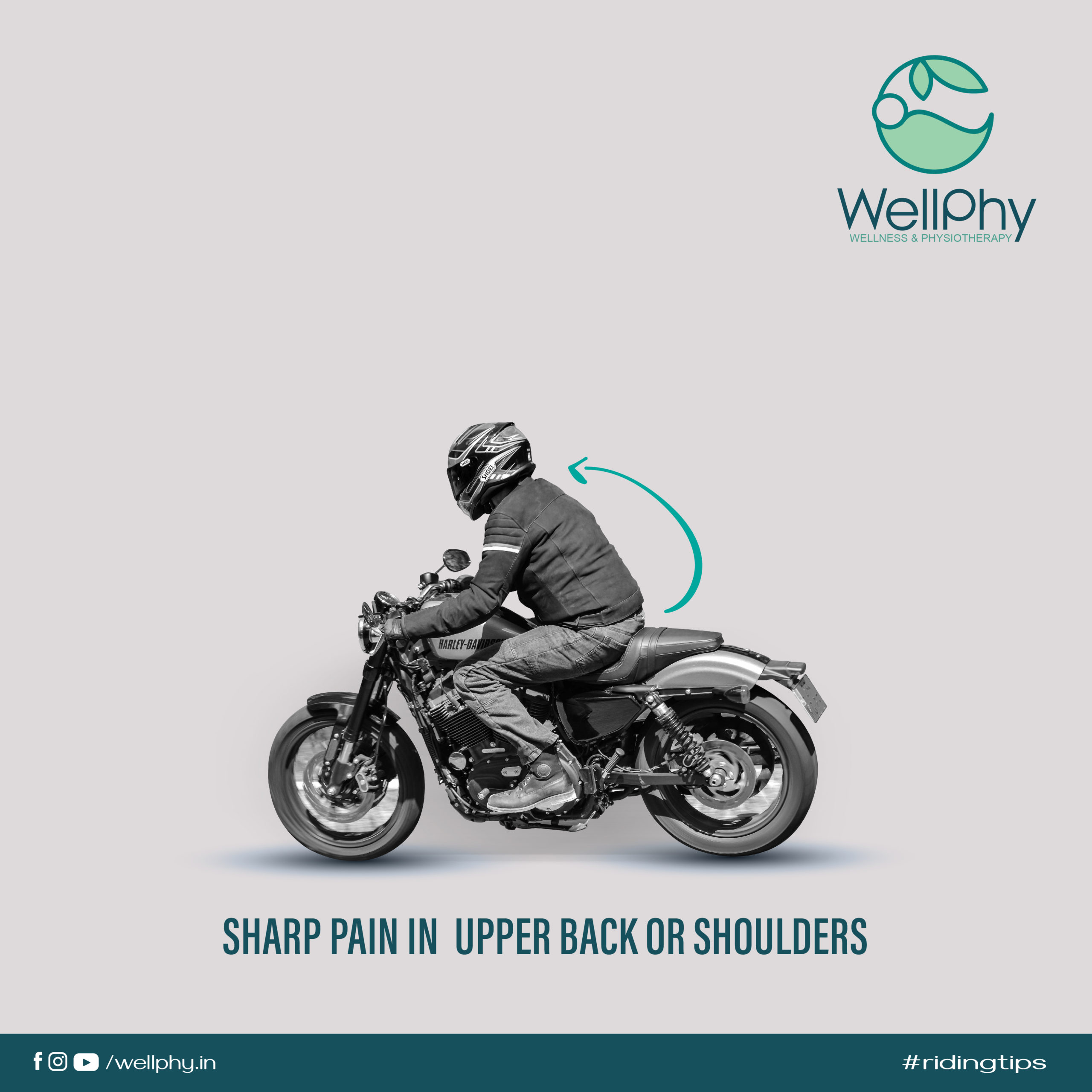
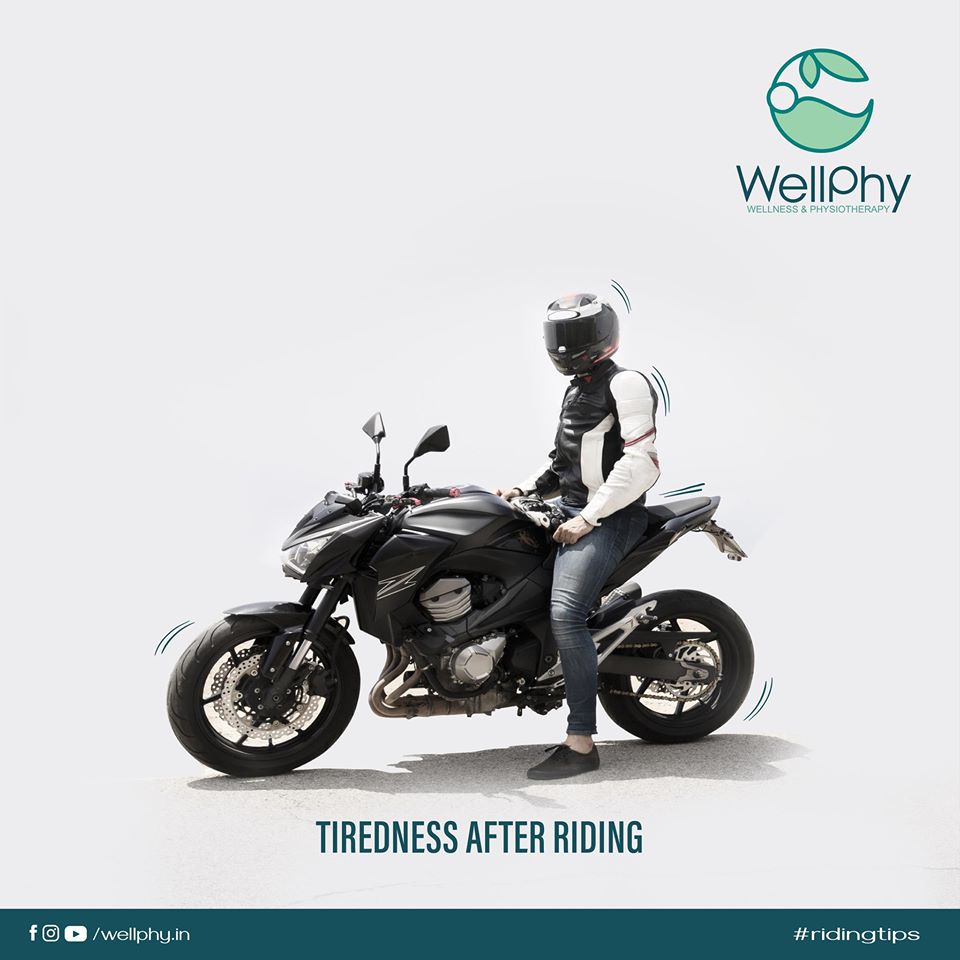
After completing a ride of several kilometres, it’s obvious that the body will get tired and fatigued. It’s very important to address this. The issues may include blood pressure fall, extreme tiredness, lack of appetite, fever, and pain on several body parts including back, neck, hand, wrist and leg.
Taking rest and giving the body time to heal is very important at this stage. You should also watch what you eat. Make sure to include essential vitamins, minerals and more fruit in your diet. Drink Sufficient water as well. It’s advised to avoid alcohol since it causes dehydration thereby slowing down the recovery process.
If the pain is severe and persisting it’s always better to consult a physiotherapist and take an opinion about the condition. An experienced physiotherapist will guide you with proper exercises which will help you with better recovery and may also suggest treatment sessions if necessary.
Are you back from a ride and feeling tired? Or is any riding related issues affecting your day to day life? Our experienced physiotherapists will help you to heal better.

